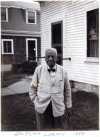Everyone loves donuts, there’s something about that delicious deep fried treat that brings a smile to everyone’s face. Donut Day celebrates this wonderful treat, it’s history and a special holiday brought into being to honor a special group that arose during World War I. One of the little-known facts about the donut is exactly what that well-known shape is called, read on, and maybe you’ll find out!
The history of the donut isn’t clearly known, but what is known is that their iconic look started making an appearance in the United States in the mid-1800’s. Rumor has it a gentleman by the name of Hanson Gregory invented them, out of a distaste for the undercooked centers and greasiness of the existing shapes and options. The shape was said to be obtained by punching a hole in the center with a tin pepper box. There are many varieties of donuts outside of that most commonly known, including twist donuts, fritters, and the hugely varied and popular filled donut. Filled donuts come in a huge variety, including the very popular Devil Dog, a chocolate covered delight filled with a rich cream. Glazed donuts filled with all sorts of delicious fruit, with raspberry being a runaway favorite throughout the world, and lemon filling being an equally popular.
Doughnut Day came to pass, in part, due to the efforts of a doctor in the military in the first World War who sought to brighten the day of the wounded soldiers he worked on. On his first day to the Military Base, he purchased 8 dozen doughnuts and gave one to each soldier he worked on. After giving one to Lieutenant General Samuel Geary, who received it with great mirth and appreciation for the doctors work, Samuel decided to start a fundraiser, letting the young doctor, Morgan Pett, to continue to provide doughnuts to his patients. This fundraiser began working together with the Salvation Army who, after a fact-finding mission, determined that many needs of the soldiers could be met by creating social centers that would provide all sorts of amenities, including the doughnuts. The Salvation Army sent 250 volunteers to France to help put these huts together, which soon became a mainstay of military life. One record of a day in the huts recorded up to 300 donuts and 700 cups of coffee being served as part of their service. Due to the majority of the workers being female, the Salvation Army workers started to be known as “Doughnut Dollies.” These huts went a long way to improving the overall life of the soldiers during the war and has become a tradition that the Salvation Army continues to this day as a fundraiser for this wonderful organization.

Word of the Day
| |||
| Definition: | (noun) A plant adapted to grow in water. | ||
| Synonyms: | aquatic plant | ||
| Usage: | Water lilies and other hydrophytes dotted the surface of the lake. | ||

Idiom of the Day
a sly dog— Someone who, through cunning, devious, or dishonest means, achieves a fortuitous outcome |

History
| |||||||
| |||
 | The Feast of the Sacred Heart of Jesus is a solemnity (meaning a festival of the greatest importance) in the Roman Catholic Church celebrated on the Friday afterCorpus Christi. It is devoted to the symbol of Jesus' love for all humanity and is a significant holiday in Colombia. | ||
| |||
| Scientists have recently discovered the largest, and possibly one of the oldest, sea sponges ever recorded. | |||
1800 - John Adams moved to Washington, DC. He was the first President to live in what later became the capital of the United States.
1851 - The New York Knickerbockers became the first baseball team to wear uniforms.
1937 - The Duke of Windsor, who had abdicated the British throne, married Wallis Warfield Simpson.
1965 - Edward White became the first American astronaut to do a "space walk" when he left the Gemini 4 capsule.
1989 - Chinese army troops positioned themselves to began a sweep of Beijing to crush student-led pro-democracy demonstrations in Tienanmen Square.

DAILY SQU-EEK


| Picture of the day | |
 |
An interior view of the Hagia Sophia in 1852, when it was known as the Ayasofya Mosque. The building was originally constructed as a main Eastern Orthodox church and served in this role from 537 AD until the fall of Constantinople in 1453 (except between 1204 and 1261 when it was converted by the Fourth Crusaders to a Roman Catholic cathedral). When the Ottoman Turks under Mehmed II conquered Constantinople, the Hagia Sophia was converted into a mosque and Christian relics and art were either removed or plastered over. It remained a mosque for almost 500 years, before being converted into a museum between 1931 and 1935. Famous in particular for its massive dome, it is considered the epitome of Byzantine architecture and influenced the design of numerous mosques in what is now Istanbul.
|
PRAIRIE DOG

Prairie dog families live with hundreds of others in networks of tunnels dug below North America's grasslands. Most of these communities, called dog towns, cover less than half a square mile
thanks, susan, west coast correspondent, for sharing our lives in old pictures! part 1
![[]](http://yougottobekidding.files.wordpress.com/2014/01/image111.jpg?w=245)
knit
knit
knit
knit
![[]](http://yougottobekidding.files.wordpress.com/2014/01/image076.jpg?w=425)
crochet, FATHER'S DAY
crochet
crochet
crochet
crochet, must register to download
![[]](http://yougottobekidding.files.wordpress.com/2014/01/image079.jpg?w=400)
RECIPES
thanks, shelley
![[]](http://yougottobekidding.files.wordpress.com/2014/01/image077.jpg?w=343)
CROCKPOT RECIPE
![[]](http://yougottobekidding.files.wordpress.com/2014/01/image087.jpg?w=320)
SWEETS
![[]](http://yougottobekidding.files.wordpress.com/2014/01/image080.jpg?w=497)
CRAFTS
![[]](http://yougottobekidding.files.wordpress.com/2014/01/image086.jpg?w=350)
CHILDREN'S CORNER ... FATHER'S DAY craft

![[]](http://yougottobekidding.files.wordpress.com/2014/01/image081.jpg?w=476)
PUZZLE
![[]](http://yougottobekidding.files.wordpress.com/2014/01/image083.jpg?w=497)
QUOTE

![[]](http://yougottobekidding.files.wordpress.com/2014/01/image113.jpg?w=354)

![[]](http://yougottobekidding.files.wordpress.com/2014/01/image085.jpg?w=394)
CLEVER

EYE OPENER

It’s not secret that I love to read. In fact, reading has been a vital part of my life, education, and livelihood for an long as I can remember. But you may be asking, as a minimalist how do I keep up with all the books I want to read without owning these titles? Simple, my local public library. And for those who think of the library as a place for only kids books and reference editions, you’re behind the times my friends.
Today with local libraries lending everything from sewing machines to e-materials, cultural passes to pots and pans, these vital community institutions provide so much more than books these days. So dust off your library card and check out these 13 new and amazing reasons to fall back in love with your local public libraries!
1. E-Books and audio-books: If you’re a fan of e-books, audio-books or streaming video, you’re in luck! Many local library branches provide free programs such as Hoopla, which lets you instantly borrow free digital movies, music, eBooks and more from home with your library card, including titles on Amazon, Netflix, Audible and Spotify! In addition, many local library systems provide free access to the Overdrive app, which gives patrons allows access to new released digital audio-books and eBooks, categorized by genre, availability, language, and grade levels from home. with additional specific featured collections. It also goes without saying that local libraries are also treasure troves for physical DVD’s, audio-books, CD’s, and video tapes, too!
2. Foreign Language Instruction: As a former language instructor in college, this is one of my favorites! Many libraries offer Mango Connect, a free net-based program to help students and working adults alike learn over forty languages including Arabic, Spanish, Mandarin, Cantonese, French, Italian, Vietnamese, German, Russian, Swahili and Arabic.
3. English as a second language: Looking to sharpen your English speaking skills? Be sure to stop by your local library’s circulation desk to see if your local branch’s offers free second language resources.
4. College e-Textbooks: College is expensive. College and university textbooks are even more expensive. Luckily, many local library branches offer eBrary, which allows you to check out or download both community college, vocational, and college level books for many public in-state institutions. The best part? This program even allows for in-program hyperlinking and highlighting!
5. Activity passes: Many libraries offer free day passes to museums, zoos, concerts, poetry slams, and even to kid’s movie festivals! Keep in mind, tickets are on a first-come first-serve basis, and you will likely have to reserve passes in advance.
6. Tutoring: Did you know that all public library branches will allow patrons to request individual one-on-one librarian tutoring services? You can schedule 30 minute sessions you need researched and studied, and they’ll come armed with materials and information to discuss your area of interest, test, and even mandated test subjects. With the cost of tutoring costing often in excess of $60.00 or more an hour, this is a little know bargain for the academia world!
7. SAT and ACT test prep classes: Before you put down any of your hard earned cash for test prep classes, be sure to check your local public libraries to see if your local branch offers test prep, both online or even in person, which can not only help you prep for test success but boost your chances for scholarship prospects.
8. Resume writing assistance: Many local libraries provide resume writing software as well as one-on-one business professional services, which can help you build your best resume to date. Also, many libraries offers classes to help you optimize job search prospects.
9. Homework help: Is your child in the middle of algebra homework and could use a little extra one-on-one help? You’re in luck as many local libraries provide free code access for Tutor.com, a site that pairs with many library systems to provide free live homework help from trained professional educators. Tutors will help with proofreading rough drafts, PSAT and GED prep, and most services are available these services are available in English, Spanish, Arabic, and Vietnamese from 2 P.M. to 10 P.M. EST each weeknight.
10. Digital Subscriptions: Are a magazine addict? Save those hard earned dollars and check to see if your local branch to see if your library will give you free access to Zinio, a site that offers over 5,500 current issue options, as well as many back issues on your device of choice, both on ios and Android.
11. Home Improvement Rentals: Have a few home maintenance projects looming on the horizon? Be sure to check with your libraries circulation desk to see if they will provide you access to a local municipal libraries, often run by independent non-profits run volunteers which give 12-hour, free “tool library” borrowing services to local library patrons.
12. Summer Reading Programs: Avoid the dreaded summer brain drain by checking your local library for Summer reading programs. Many programs include reading lists, scheduled local storytellers, board game and crafting play-date group sign-ups, and even mommy meet-ups for homeschooling parents. And the best part? Many branches also offer summer book clubs for adults too!
13. Meeting Space: Looking for free meeting room space for your local book club? Your local branch library often has meeting space that’s free to reserve. Keep in mind, many branches will need you to reserve rooms a month in advance. Check with your local library for more details.



















![[]](http://yougottobekidding.files.wordpress.com/2014/01/image088.jpg?w=477)
I love the local library's free audio books! Knitting and listening to books rocks. Currently on my phone's audio book app: The Endless Steppe by Esther Hautzig.
ReplyDelete